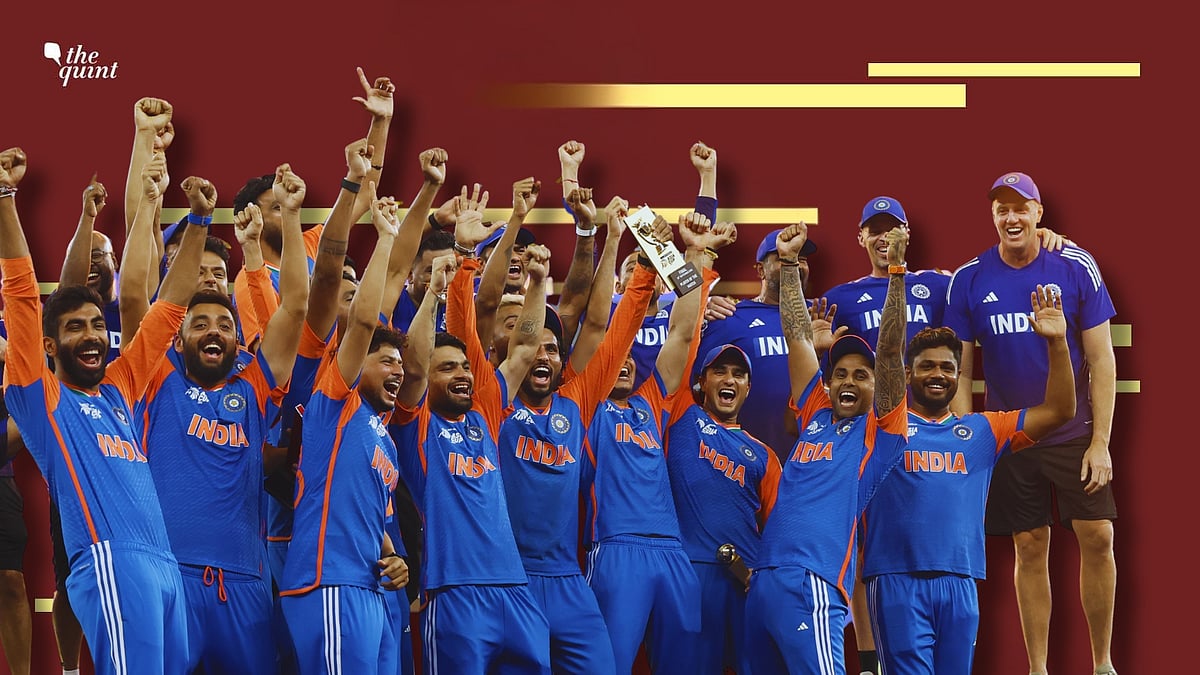2025 Asia Cup: The Win That Was, The Trophy Wasn't, And The Cricket That We Lost
2025 Asia Cup: Began political narratives eclipsing cricket, ended with a trophy presentation minus the trophy.

advertisement
Sport has often seen how trophy presentation ceremonies double as stages for protest and politics.
At the 1968 Olympics, it saw the famous Black Power salute, where two black athletes who had won medals in 200m sprint — Tommie Smith and John Carlos — raised a black-gloved fist to protest against racial discrimination in the USA. At the 1972 Olympics, it saw the US men’s basketball team refusing silver medals, in a protest against controversial referring. The medals are unclaimed till date, and are believed to be kept in a vault in Lausanne. Two decades later, Ghana’s men’s football team echoed the act, when they lost to Ivory Coast in the 1992 AFCON.
Understanding The Chronology: The Action
The sheer absurdity of the spectacle defies logic, so the best we can do is retrace the sequence of events.
In the post-match press conference, Indian captain Suryakumar Yadav claimed that it was the team’s decision to not accept the trophy from Naqvi. This is along the lines of Yadav claiming the handshake refusal was his decision, on 14 September. The office bearers at BCCI, however, have hinted at the call coming from higher powers.
The board secretary commented that it is morally and ethically wrong to accept a trophy from a leader of a nation waging war against India. Notably, Naqvi had tweeted a video of Cristiano Ronaldo’s plane crash celebration, in muted support of Haris Rauf’s gesture.
Understanding The Chronology: The Reaction
And so, sidelining the game of cricket, the game of optics began. In this game, there's only one rule. The rule being Newton's third law — every action must provoke an equal and opposite reaction.
Amid prolonged, and at times, animated discussions among the officials, the post-match presentation was delayed by an hour. The Pakistani team had retreated to the dressing room, Indians were busy celebrating and shooting reels on the ground, and while all of this happening, the trophy — which was initially on display — was chaperoned out of the field.
The presentation saw only individual awards being dished out, with presenter Simon Doull saying:
Understanding The Chronology: The Talk
The scene carried a bizarre comic undertone when the Indians mimicked a trophy lift, a gesture that seemed equal parts parody of the fiasco and protest against EA Sports’ notorious glitch in EAFC (formerly FIFA).
And even that was not the end of it.
Yadav, at the press conference, expressed his bemusement.
Pakistan’s Salman Ali Agha, meanwhile, stood firmly by his board chairman. Only minutes ago, he had thrown the runners-up cheque.
Talk Intensifies. Enter the Big Players.
That, the match will be turned into a political spectacle of showcasing supremacy, was always likely. In fact, on Sunday morning, The Quint had predicted that regardless of the outcome, headlines will inevitably be centered around non-cricketing events. Sporting brilliance will inevitably be eclipsed by performative nationalism.
We were right.
The Indian Prime Minister, Narendra Modi, likened the event to Operation Sindoor.
The BCCI secretary termed the win ‘Operation Killa.’
Union minister Kiren Rijiju, sharing a picture of Jasprit Bumrah’s airplane celebration after dismissing Haris Rauf, added that Pakistan deserve to be punished.
Mohsin Naqvi, again adhering to the sole rule in the game of optics, came with the equal and opposite reaction to Modi’s statement. In his turn, he stated:
When Cricket Became A Proxy Battlefield
This tournament, then, was never just about cricket. It was a theater for political muscle-flexing, each symbolic act met with its counterstrike.
Like when Suryakumar Yadav announced that he will be donating his match fees from the tournament to the Indian Armed Forces and the victims of the Pahalgam terror attack, and it was immediately followed by Agha’s announcement of the entire team donating their match fees to the victims of the May 7 attacks during Operation Sindoor. He went on to say that the attacks were carried out by India, though the mention has been omitted from PCB’s statement.
But here we are, spending words and time on something which could easily have been avoided. The game of cricket is well and truly a political spectacle now, and this was always likely to happen.
How can we tell with such certainty?
Because we had told you so.